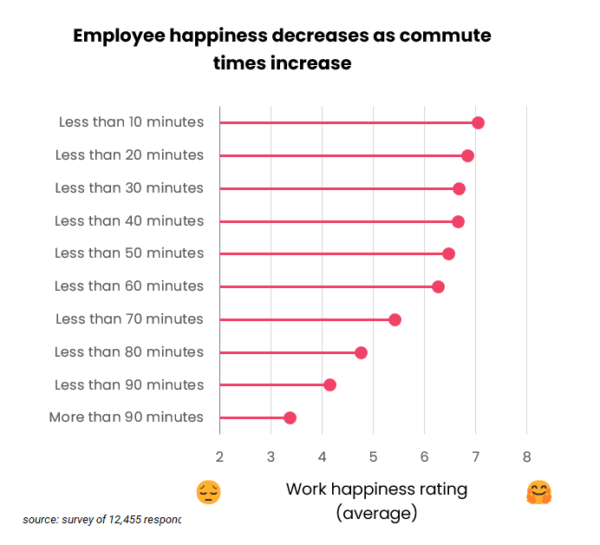Crisis comms lessons from State Farm, how to engage employees after mass shootings and more
Check out why comms pros should be concerned with employees’ happiness, along with our weekly roundup of inspiring stories.

Hi there, comms connoisseurs.
Let’s explore some notable stories from May 23-27, 2022 — and pull out a few timely, tactical takeaways along the way:
1. Crisis comms lessons from State Farm’s LGBTQ+ children’s book controversy
Less than a day after announcing a program meant to expand access to children’s books about LGBTQ+ people, insurance giant State Farm sent an email to all agents and staff members notifying them of the program’s cancellation.
In an email to all State Farm agents and staff members sent just hours after multiple news outlets revealed the book initiative, Victor Terry, chief diversity officer and vice president of public affairs, announced the cancellation of its collaboration with GenderCool, an organization that promotes LGBTQ teaching via speaking events, mentorship programs, DEI/HR consulting, and advising for parents of transgender children.
“State Farm’s support of a philanthropic program, GenderCool, has been the subject of news and customer inquiries. This program that included books about gender identity was intended to promote inclusivity,” the email, obtained by Libs of TikTok, read. “We will no longer support that program.
“Conversations about gender and identity should happen at home with parents,” the email reads. “We don’t support required curriculum in schools on this topic. We support organizations providing resources for parents to have these conversations.”
And a spokesperson for State Farm told the Washington Post that the company still supports people in the LGBTQ+ community.
“We recognize and value the diversity of all people, and support a culture of respect and inclusion in the communities in which we live and work, as well as our workplace,” he said.
State Farm backtracking on its program undercuts its message of inclusion for LGBTQ+ customers, but perhaps reflects the divisions that exist in the U.S. over LGBTQ+ rights. And those divisions could have profound ramifications for employees.
New research from Glassdoor finds that LGBTQ+ employees in particular feel less satisfied at work than their peers, so extending a meaningful hand to your LGBTQ+ workers could be the thing that encourages them to stay with your organization.
2. Why comms pros should be concerned with their employees’ happiness
A new study from Tracking Happiness has found that the ability to work remotely increases employees’ happiness by as much as 20%.
In addition, the study says, as commute times increase, reported levels of happiness decrease.

“…companies can improve employee happiness by simply allowing them to work from home more,” writes Hugo Huijer, founder of Tracking Happiness. “Not only does this benefit the environmental footprint of your company, it also helps improve employee morale.”
In many organizations, comms pros are tasked with overseeing employee wellness initiatives. While communicators often don’t have the ability to decree WFH for their companies, it’s worth looking into how happy your employees are if your company has required in-person work once again.
Consider crafting a set of pulse surveys centered around employee happiness — and prepare yourself with some solutions in case the results paint a negative picture. Setting and enforcing a mandatory PTO policy — in essence, requiring employees to take time off — is one way to boost worker happiness.
3. How to communicate with employees after a mass shooting
Following the mass shooting in an elementary school in Uvalde, Texas, earlier this week, many people are feeling distraught or on edge.
It’s important that communicators take care to support their employees who may be feeling stressed or down following national or local tragedies. While it may seem like an opportune time to review emergency procedures and evacuation routes, it might be better to set regular dates for these events so employees can mentally prepare themselves.
Discussing mass shootings and other traumatic events can prompt negative reactions in employees who see themselves or their loved ones in the victims, says Angelica Leigh, an assistant professor at Duke’s Fuqua School of Business who studies diversity and emotions in the workplace, in an interview with Time.
“Oftentimes people in that moment end up having to put on this face of, ‘I’m doing fine, it’s just another day in the world for me,’ she says. “We all have a limited amount of energy to invest in our work, our home lives, et cetera. And if you’re investing some of that energy in suppressing these negative emotions, then there’s less energy for you to then invest into your work.”
Leigh advises managers to consider how targeted, racist shootings like the one in Buffalo can affect members of marginalized communities, and to create your messaging based on how these employees may be feeling.
“Modeling is a big thing, as a manager—really highlighting things that you may participate in, whether it’s at work or outside of work, that are unique to your identity,” she suggests. “And saying, ‘I might not understand what you’re going through, but I definitely get that this could be a really challenging time for you. My door is open if you ever want to have a conversation about this.’ Just opening the door to allow for people to really share more of their feelings and experiences in the world.”
Make sure your managers have the resources to respond in moments of tragedy and think about how you can develop a library of materials on mental health and other topics that are, unfortunately, likely to be relevant once again in the future.
4. How about some good news?
This week, let’s draw inspiration from:
- New research that suggests monarch butterfly populations are rebounding
- The story of how 285 art school graduates had their student loans paid off by a tech mogul
- The awarding of this year’s Goldman environmental prize
- Ragan Training, which is an incredible resource for communication inspiration and education.
- You also deserve an award. Get your due here!
Take good care of yourselves, comms champions, and keep up the good work.







